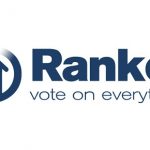Inside Three Companies That Are Innovating Flexible Schedules
A new study by career site FairyGodBoss shows that, after compensation, flexible hours trump every other factor when women are deciding on a job offer, regardless of their age or whether they have children. A recent study by McKinsey & Company finds that millennials of both genders are more likely to accept a job offer from a company that offers flexible work schedules.
Yet what drives most company’s recruitment efforts is demonstrating that it’s a “cool” or “fun” place to work. Instead of investing in ways to innovate flexibility, many companies are still spending money on foosball tables, onsite yoga, and free food. “Flexibility will become the norm for employers who want to win the war on talent,” says Joanna Barsh, director emerita for McKinsey & Company and author of Centered Leadership.
Flexible work schedules don’t necessarily mean employees work from home every day. “Flexibility means I can control my time so I’m not stuck in meetings from 9 a.m. to 5 p.m., I know what work I need to do, and you will trust me to get it done,” says Romy Newman, cofounder of FairyGodBoss.
Some companies, including Asana, Dropbox, and Dell, are finding ways to change expectations around meetings and face time, and build a culture of accountability and support that makes it possible for employees to control their own time.
Sabbaticals And No Set Hours
“At Asana, people feel empowered to do what they need to do,” says Sonja Gittens Ottley, head of diversity and inclusion. The company is able to offer employees flexibility because of the innovative way teams work together, she says. Deliverables and goals are planned out four months at a time so that everyone knows what they’re responsible for and what they’re trying to achieve during that time period. There is a clear plan, clear line of responsibility, and clear goals, she says. By being thoughtful about what the team is trying to achieve, she says, busy work and unnecessary meetings are eliminated from the workday.
Employees are encouraged to come to work each day, Ottley says, but they set their own schedules. Employee hours are not set or tracked, and they are encouraged to work a schedule that is best for them and their families. There is no limit on time off but, she says, employees are asked to be mindful of team goals and commitments. Employees are eligible for a six-week sabbatical after three years of service.
An Asana employee-wide survey conducted last summer found that, among tech companies, Asana is in the 99th percentile for overall employee satisfaction and engagement, Ottley says. Employees reported feeling empowerment, autonomy, and trust, the survey found.
Unlimited Paid Time Off And No-Meeting Wednesdays
Dropbox also offers unlimited paid time off (PTO) and allows its employees the flexibility to set their own schedules. “We’ve found that when employees are given flexibility, they are more highly engaged,” says Melanie Collins, global head of people partners.
Last April, Dropbox switched from 18 vacation days and two floating holidays a year to unlimited PTO. Since that change, more employees are taking PTO, and those employees are taking more time off in terms of days and hours than they had previously, Collins says.
Dropbox has also instituted no-meeting Wednesdays to enable employees to have uninterrupted time to work. Some employees choose to work from home, Collins says, but others use this time to “walk around the office and have more organic conversations with their colleagues.” As a result of these changes, Collins says, Dropbox saw a 10% increase around the issue of work-life balance in its annual employee engagement survey.
Half Staff On Flexible Schedules
Meanwhile, Dell aims to have 50% of its global workforce on flexible schedules by 2020, says Steve Price, senior vice president of human resources. Currently, 25% of the workforce—approximately 25,000 employees—have made arrangements with their supervisors to regularly work a flexible schedule from the location of their choice, provided they have the tools and technology to support working outside the office. “Beyond that,” he says, “we know another 20% work flexibly as they are able to from home, coffee shops, and hotels.”
Encouraging employees to work flexible schedules has not only increased employee satisfaction, says Price, it also has saved Dell $21 million since 2013 in real estate costs by allowing Dell to consolidate or exit underused office space. Last year, 93% of employees said in a companywide survey that flexibility helps them to be successful, Price says.
“Flexibility is increasingly more important in the value proposition for recruiting,” Collins says. “It’s what folks are looking for, and what we need to do to be more competitive.”
Fast Company , Read Full Story
(44)














